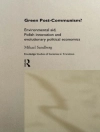Why did it take the Conservative Party so long to recover power? After the landslide defeat in 1997, why was it so slow to adapt, reposition itself and rebuild its support? How did the party leadership seek to reconstruct Conservatism and modernise its electoral appeal?
Of vital interest to anyone interested in British politics, this highly readable book addresses these questions through a contextualised assessment of Conservative Party politics between 1997 and 2010. It traces debates over strategy amongst the party elite and scrutinises the actions of the leadership. It also considers four particular dilemmas for contemporary Conservatism: European integration; national identity and the ‘English Question’; social liberalism versus social authoritarianism; and the problems posed by a neo-liberal political economy. The book argues that the ideological legacy of Thatcherism played a central role in framing and shaping these intraparty debates, and that an appreciation of this is vital for explaining the nature and limits of the Conservatives’ renewal under Cameron.
Spis treści
List of tables and figures
Acknowledgements
List of abbreviations
PART I: THEORY AND CONTEXT
1 Introduction: The Conservative Party and Electoral Failure
2 Thatcher’s Legacy: Late-twentieth century Conservatism in Context
3 The Wilderness Years: Leadership Strategy in Opposition, 1997-2005
PART II: THEMES AND ISSUES
4 The European Question
5 National Identity and the English Question
6 A New Moral Agenda? Social Liberalism and Traditionalism
7 The Political Economy of Twenty-first Century Conservatism
PART III: CONCLUSIONS
8 Reconstructed Conservatism? ‘Cameronism’ in Context
Bibliography
Index
O autorze
Richard Hayton is Senior Lecturer in Politics at the University of Leeds












